Insecurity: How Long Will Buhari Continue To Rely On Blame Game?
As the country battles with Boko Haram and ISWAP, ‘terrorists’ who have adopted a kidnap-for-ransom tactic, have killed many Nigerians in the last few years.

Nigeria’s President Muhammadu Buhari has consistently come under attack over the security challenges rocking the country. The nation’s problem has gone beyond Boko Haram insurgents in the Northeast to diverse insecurity challenges.
Buhari’s administration has struggled to find solutions to the growing crisis. Years after the 2015 election which ushered in his administration, partly on a promise that he would end insecurity, the country’s situation remains volatile.
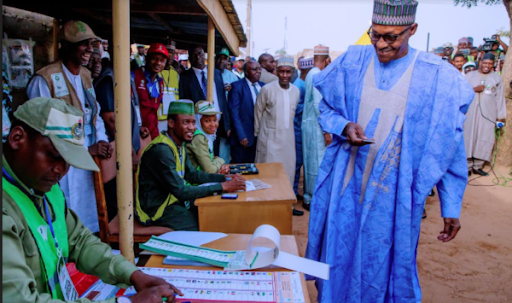
At first, the government pushed the narrative that Boko Haram insurgents in the Northeast have been ‘technically defeated’ but the propaganda failed after repeated attacks by the terrorists. A recent research reported that no fewer than 2,539 persons were killed from 654 attacks between 2017 and 2020.
As the country battles with Boko Haram, terrorists, locally known as bandits, have killed many Nigerians in the last few years. They have since adopted a kidnap-for-ransom tactic that has led to the abduction of students in secondary schools and tertiary institutions. They have in the past killed some of the students, a development that forced state officials to negotiate and pay millions in ransom to secure their freedom.
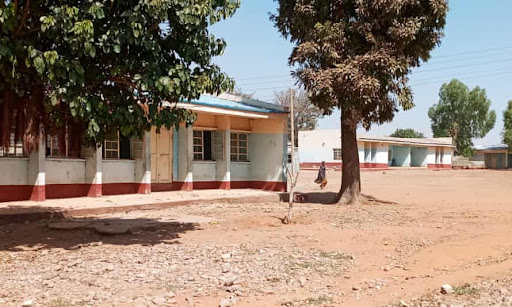
Other security challenges
Aside from Boko Haram/ISWAP insurgency and ‘banditry’, Nigeria is also battling with the crisis between farmers and herders. The crisis which has claimed thousands of lives, has become one of Nigeria’s gravest security challenges in recent years.
According to a report published by Amnesty International in 2018, about 3,641 persons were killed in various farmers-herders clashes between Jan. 2016 and Oct. 2018. The report also revealed that no fewer than 406 people were injured and 182,530 persons displaced following the destruction of 5,000 houses in various states across Nigeria.
Also, there have been rising attacks on police stations and police officers in the southern states of Nigeria. The attacks have led to the death of over 100 police officers in the past seven months.
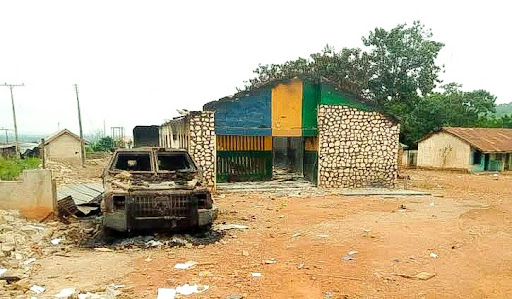
While the Nigeria Police Force and Federal Government have repeatedly blamed the attacks on the secessionist group, the Indigenous People of Biafra (IPOB), there is no evidence to substantiate this claim.
The Global Terrorism Index in 2019 ranked Nigeria third out of 138 countries most impacted by terrorism with no improvement since 2017. The country, according to the Fragile States Index, is also said to be the 14th most fragile in the world and the 9th in Africa.
These challenges have impacted the nation negatively and many stakeholders, including civil society groups, called for the removal of the country’s security chiefs. After endless criticisms, Buhari replaced the service chiefs but insecurity has persisted.
Huge funding with no result?
The government has repeatedly allocated significant amounts to tackle insecurity, including other subnational funds to states known as ‘security vote’.
Before Buhari’s emergence as president, his predecessor, Goodluck Jonathan, in 2015 allocated N934 billion to the security sector. Before then, he allocated N920 billion and N924 billion for 2011 and 2012 respectively. In 2013 and 2014, N923 billion was given to the sector in each year.
The country recorded little success during these periods due to the massive corruption that characterised the fund’s use. The budgetary allocations have remained huge under the watch of Buhari. HumAngle understands that N878.4 billion and N840.56 billion were earmarked for the military in 2020 and 2021 respectively. Despite these, the country is still performing poorly in its fight against insecurity.
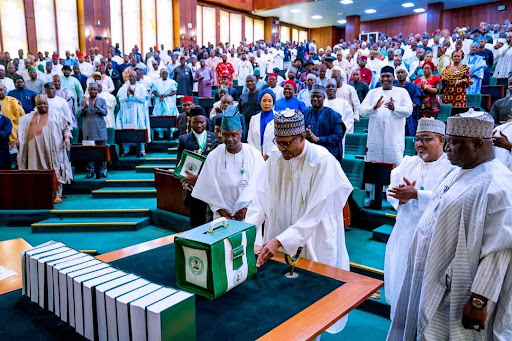
Out of the N878 billion received by the Defense Ministry in 2020, the recurrent expenditure (personnel cost, comprising salaries, wages, allowances and social contributions) was N778 billion while the remaining was used as capital expenditure to buy sea boats, rehabilitation of barracks across the country, and purchase of ammunition.
These have also been marred with allegations of corruption against top officials in the military and politics. A recent survey by the Conversation revealed how military and public officers often divert public funds meant to fight terror and insecurity.
“We were told that expenditures are sometimes duplicated using different headings by staff in the defence ministry and military institutions. We also learnt that the lack of transparency in the procurement process encouraged corruption. The procurement of military weapons was usually shrouded in secrecy which meant that outdated items, instead of modern weapons, were purchased,” part of the report seen by HumAngle read.
The blame game
As citizens continue to express displeasure, the Buhari administration has repeatedly blamed others for its failure. In one instance, the president insinuated that state governors were responsible for ‘security lapses’ in their states.
In April 2018, Buhari publicly blamed former Libyan leader, Muammar Gaddafi, who was killed in 2011, for the ongoing killings across North-central Nigeria.
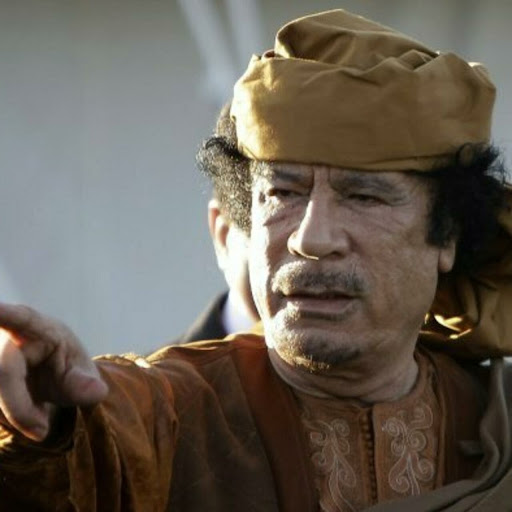
He repeated the same blame in Jan. 2019, saying “stooges of Gaddafi constitute the terrorists perpetrating evil acts in Nigeria, The bandits, who escaped from Libya after the death of their leader in 2011 took to terrorism, the brunt of which Nigeria and some other African countries are currently bearing.”
The president in Feb. 2020, blamed the leaders of Borno communities for not doing enough in terms of cooperating with the military to end the Boko Haram insurgency.
In Nov. 2020, the president’s spokesperson, Garba Shehu, blamed 43 farmers killed by Boko Haram in Borno, saying they had no permission to be there.
Earlier in Feb., he blamed the internet for Nigeria’s acute insecurity. Weeks after, the president, during a meeting at the State House Abuja with a delegation of Borno/Yobe Elders Forum, said few Nigerians with ‘resources and influence’ were responsible for the upheavals being witnessed in parts of the country.
In May, Buhari’s media aide, Femi Adesina, blamed ‘evil forces’ as the reason for insecurity in the country. For the government spokesperson, Lai Mohammed, the security challenges facing the country are ephemeral and will not define the legacy of his principal.
‘Stop the blame game’
Many citizens and groups are not comfortable with the endless blame game by the president. The Northern Elders Forum in March said Buhari must do more to secure the lives and properties of citizens, other than continue blaming everyone else for the woes befalling Nigeria.
Tunde Bakare, the serving overseer of the Citadel Global Community Church, on Aug. 3, noted that Buhari should reshuffle his cabinet “rather than blaming those abusing or misusing power around the throne.”
Ex-governor of Imo State, Rochas Okorocha, while speaking at the Nigerian Bar Association (NBA) Spidel Annual Conference in Ibadan on May 24, urged Buhari to stop blaming and take responsibility.
The need for more intelligence gathering
Tunji Abbey, a security expert who spoke with HumAngle said the way out of the security challenges rocking Nigeria is for authorities to invest more in intelligence gathering and monitoring.
He said “except the government invests in intelligence gathering, we may continue to have the blame game. The more we focus on this, there should also be the political will of leaders to end insecurity.”
In his essay titled, “Intelligence Gathering: Strategy For Security Of Lives And Property,” an academic, Oladayo Olujuwon, said authorities must “try to protect three things regarding intelligence gathering: their intelligence personnel, their intelligence facilities, and resources and their intelligence operations.
“Collecting intelligence to build up a detailed knowledge of threats to the country is at the heart of secret service work. Security intelligence (SI) is the information relevant to protecting an organisation (nation) from external and inside threats as well as the processes, policies and tools designed to gather and analyse that information. People tend to associate intelligence with crime prevention; meaning probably that the availability of timely intelligence can prevent the occurrence of crime.’’
Support Our Journalism
There are millions of ordinary people affected by conflict in Africa whose stories are missing in the mainstream media. HumAngle is determined to tell those challenging and under-reported stories, hoping that the people impacted by these conflicts will find the safety and security they deserve.
To ensure that we continue to provide public service coverage, we have a small favour to ask you. We want you to be part of our journalistic endeavour by contributing a token to us.
Your donation will further promote a robust, free, and independent media.
Donate HereStay Closer To The Stories That Matter




